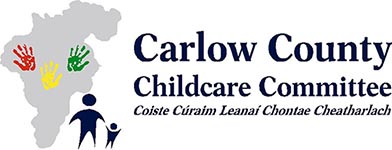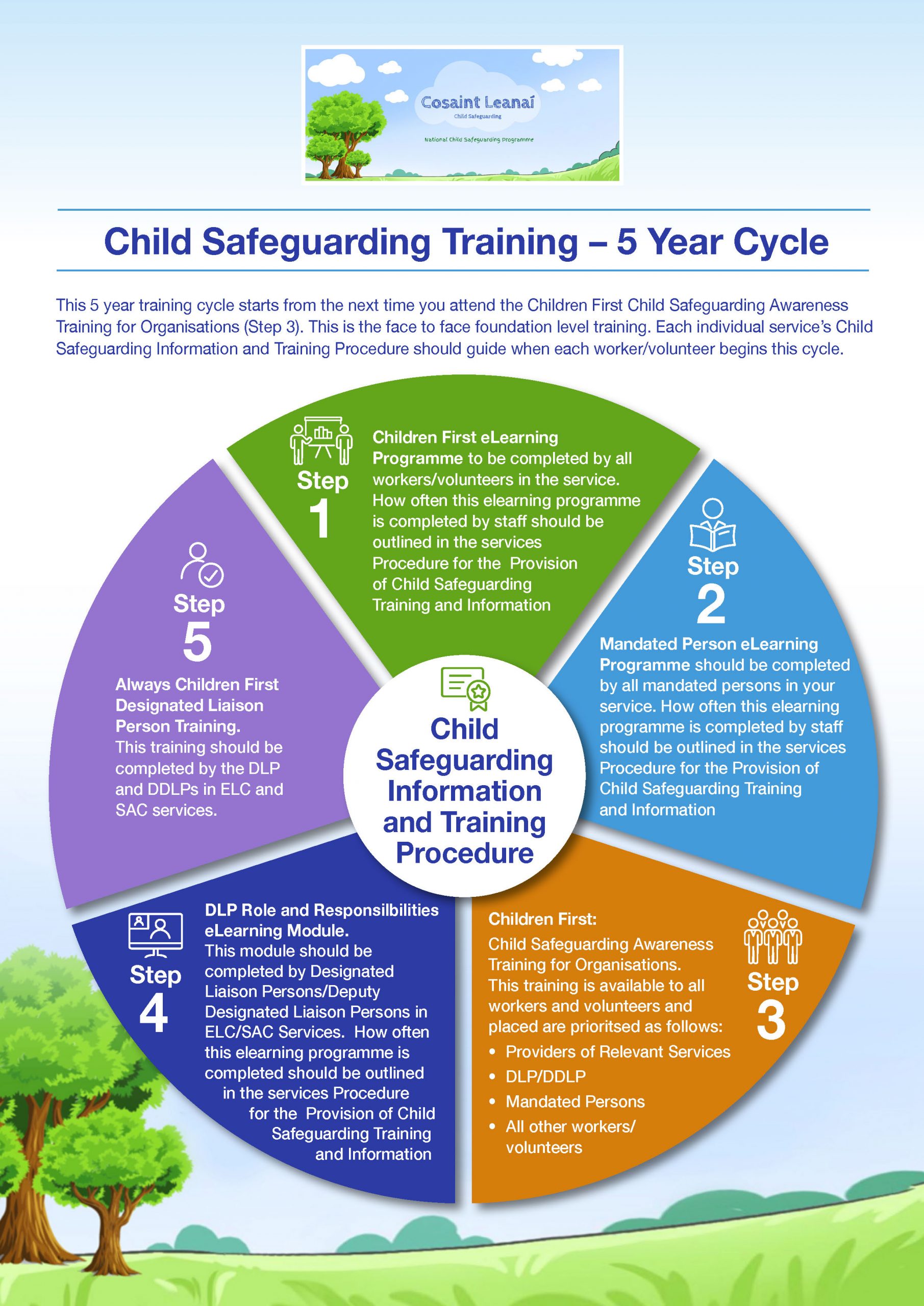CHILD PROTECTION
The Child and Family Agency has a primary responsibility to promote the safety and well-being of children. An Garda Síochána also have statutory responsibilities for the safety and welfare of children.
Everyone must be alert to the possibility that children with whom they are in contact may be suffering from abuse or neglect. Tusla should always be informed when a person has reasonable grounds for concern that a child may have been, is being or is at risk of being abused or neglected.
The Children First Act 2015 was enacted on 19th November 2015 and commenced in full on December 11th 2017.
The Act places a number of statutory obligations on specific groups of professionals (including registered childminders) and on particular organisations providing services to children.
Through the provisions of the Act, it is intended to:
- Raise awareness of child abuse and neglect
- Provide for mandatory reporting by key professionals
- Improve child safeguarding arrangements in organisations providing services to children
- Provide for cooperation and information-sharing between agencies when Tusla – Child and Family Agency, is undertaking child protection
The policy’s intent is that the legislation will operate side-by-side with the existing non-statutory obligations provided for in Children First: National Guidance for the Protection and Welfare of Children (2017)
 The Criminal Justice (Withholding of Information on Offences against Children and Vulnerable Persons) Act, 2012 and the National Vetting Bureau (Children and Vulnerable Persons) Act, 2012 are additional key pieces of complementary legislation designed to improve child safety and protection.
The Criminal Justice (Withholding of Information on Offences against Children and Vulnerable Persons) Act, 2012 and the National Vetting Bureau (Children and Vulnerable Persons) Act, 2012 are additional key pieces of complementary legislation designed to improve child safety and protection.
Ireland’s National Child Protection and Welfare Guidance Training
It is recommended that Childminders complete Tusla’s Children First e-learning programme.
An additional E-Learning module has been developed to provide information on, and understanding of, the role and responsibilities of mandated persons as outlined in the Children First Act 2015: Tusla’s Mandated Person E-Learning.
The designated liaison person (DLP) is responsible for ensuring that reporting procedures within your organisation are followed, so that child welfare and protection concerns are referred promptly to Tusla. The designated liaison person should be knowledgeable about child protection and should be provided with any training considered necessary to fulfil this role. Follow link to: Tusla’s Designated Liaison Persons (DLP) E-Learning Module .
Cosaint Leanaí, The National Child Safeguarding Programme: Early Learning and Care website is packed with Child Safeguarding resources and supports for the Early Learning and Care sector, visit: Cosaint Leanaí, Child Safeguarding elc
Carlow CCC has responsibility for the delivery of Tusla’s Always Children First Child Protection training for the Early Years sector in Carlow. This training is valid for 5 years. For more information on any of our upcoming Child Protection Training, please see the Training section of our Website or call us on 059-9140244.

